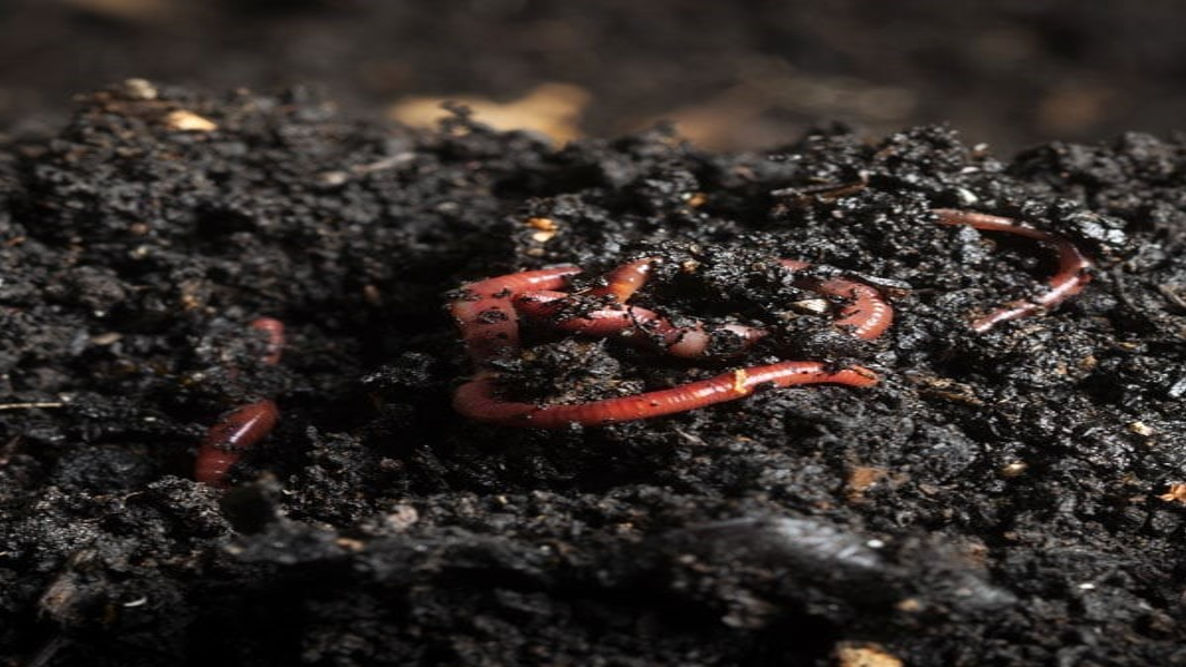Compost is typically made from organic materials like Kitchen waste, yard waste and plant matter that decomposes over time to create nutrient-rich soil amendment. Microbes are responsible for composting.
Vermicompost on the other hand is made specially with the help of worms that break down organic matter into nutrient-rich fertilizer through their digestion process. Earthworms are utilized to speed up the decomposition process.
Let us understand the advantages of Composting over Vermicompost.
- Higher NPK ratio: Compost has higher NPK ratio than Vermicompost which will help slow release of nutrients to plants.
- Less Moisture content: In Compost the moisture content will be around 30 to 40% where as in Vermicompost it will be 70 to 80%. In traditional composting, moisture levels are managed to optimize the decomposition process, ensuring that organic materials break down efficiently without becoming overly saturated. The lower moisture content helps maintain aerobic conditions, allowing beneficial microorganisms to thrive and decompose the organic matter. In vermicomposting, moisture management is also critical, but the process often results in a more consistently moist environment due to the presence of worms. The worms require moisture to survive and move through the organic material, and their activities contribute to the overall moisture content of the vermicompost.
- Temperature control: In vermicomposting, earthworms require an ideal temperature range of 18 to 25 degrees Celsius to survive, and they cannot tolerate temperatures higher than this. Composting, however, does not necessitate such controlled temperature conditions.
- Cow dung ingestion: Composting typically requires carbon rich material since the organic waste is nitrogen rich for the decomposition process whereas the Vermicomposting uses cow dung for the earth worms to grow, However, the use of cow dung as a substrate for earthworms is a traditional method that may not be suitable or practical for urban environments due to space constraints, odour concerns, and sourcing difficulties.
- Versatility: Compost can be made from a wide range of organic materials, including yard waste, kitchen scraps, and agricultural residues. This versatility allows for the recycling of a broader range of materials compared to vermicompost, which primarily relies on organic matter suitable for worms. Foods such as citrus fruits, onions, garlic, spicy foods, dairy products, meat, fish, and oily or greasy foods may contain substances that can harm worms. These foods can create acidic or toxic conditions in the worm bin, attract pests, produce foul odors, or interfere with the worms’ ability to breathe.
- Scalability: Composting can be done on a larger scale more easily than vermicomposting, making it suitable for larger operations such as commercial composting facilities or municipal composting programs.
- Faster Process: Composting typically occurs at a faster rate than vermicomposting, especially when using methods such as aerobic composting, which accelerates the decomposition process through microbial activity. This faster turnaround time can be advantageous for those needing compost more quickly.
- Weed Seed and Pathogen Reduction: Composting can effectively neutralize weed seeds and harmful pathogens present in the organic materials, reducing the risk of weed growth and disease transmission in the resulting compost. Vermicomposting systems may attract pests such as fruit flies, mites, or rodents, particularly if the composting environment is not properly managed or if inappropriate food waste is added. Also red ants will be attracted towards the compost pile if earth worms die during the process of harvesting the compost.
- Improved Soil Structure: Compost can help improve soil structure by adding organic matter and enhancing soil moisture retention, aeration, and drainage. While vermicompost also improves soil structure, compost may have a broader range of particle sizes, contributing to better soil texture.
- Lower Maintenance: Composting typically requires less maintenance and monitoring compared to vermicomposting. Once the compost pile is established and properly managed, it can largely decompose on its own.
